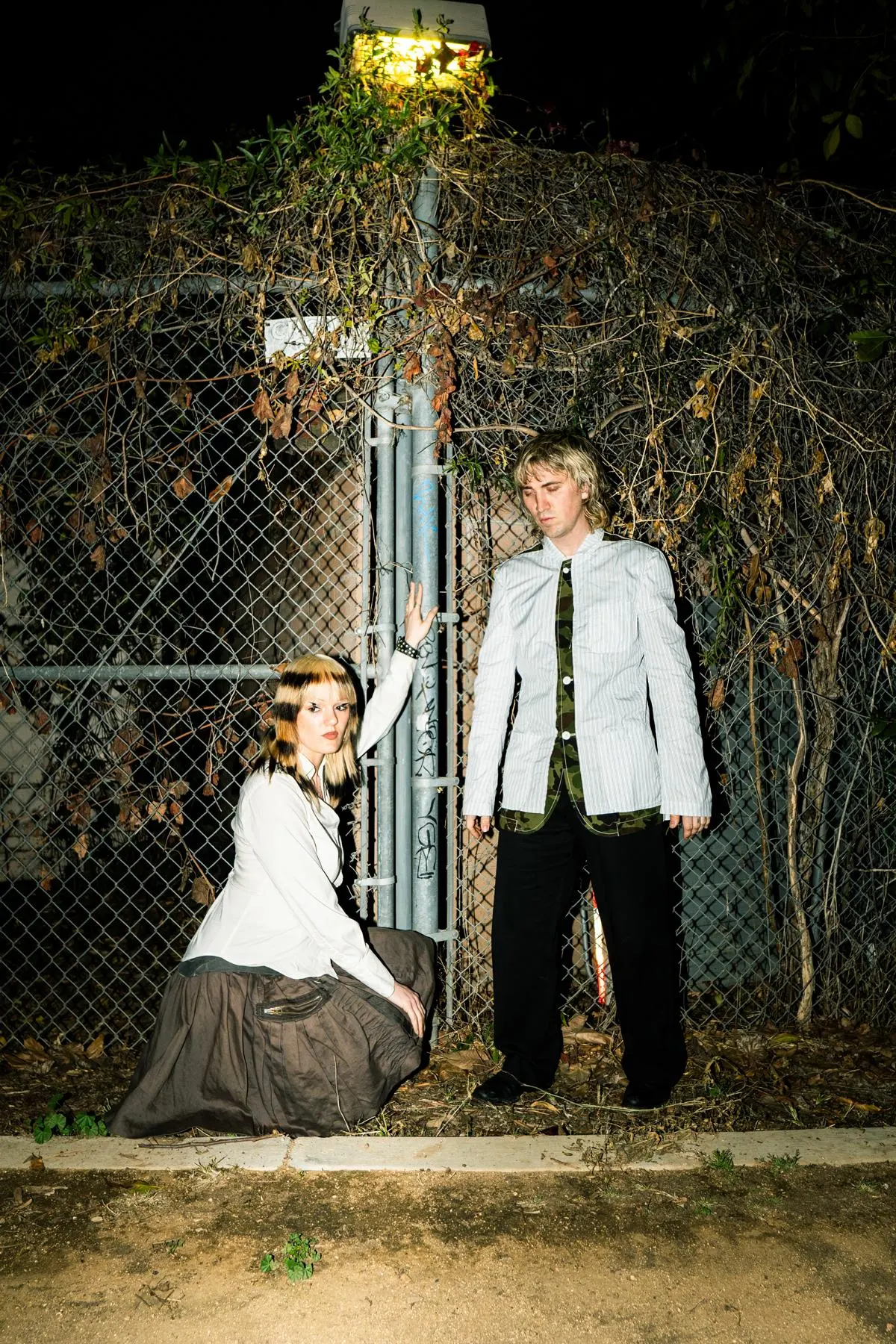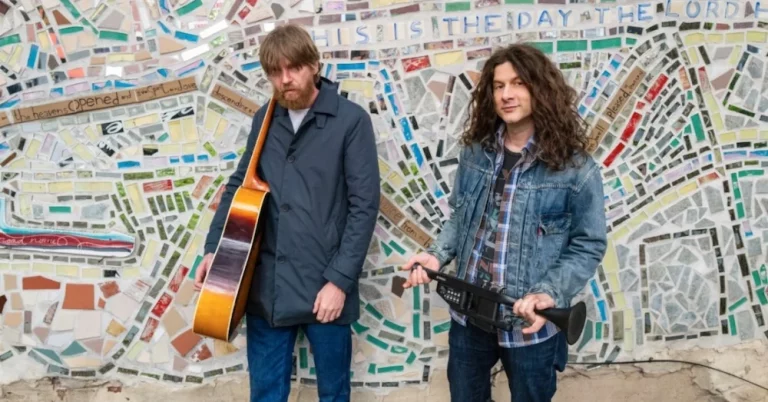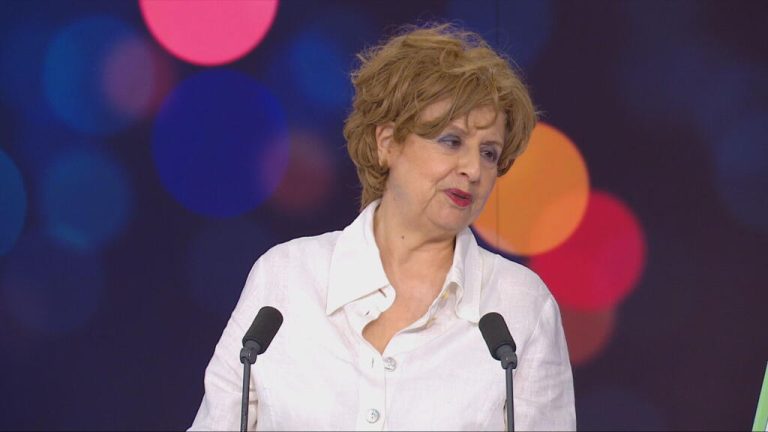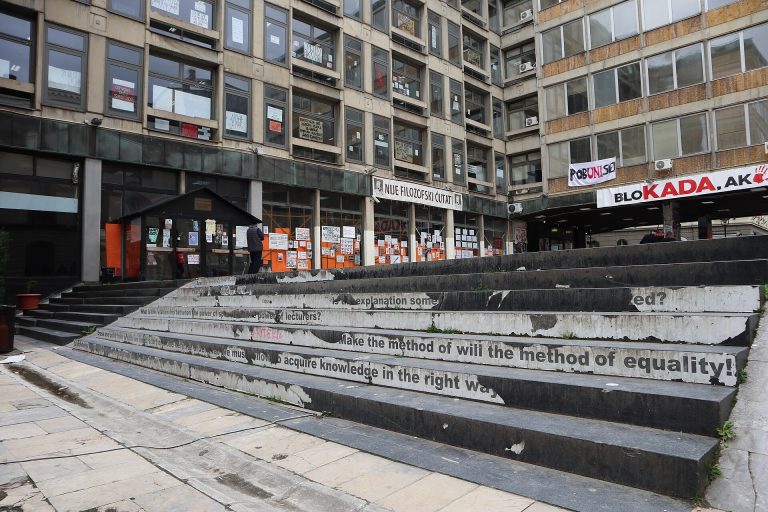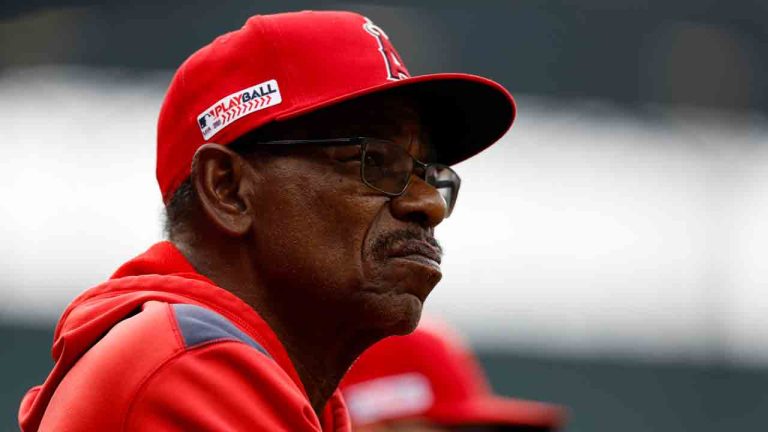Sharpie Smile is the duo of Dylan Hadley and Cole Berliner, who met in 2015 and used to make psychedelic art-rock under the moniker Kamikaze Palm Tree. ‘Sharpie Smile’ also happens to be the name of a song on Kamikaze Palm Tree’s 2019 debut LP, Good Boy. Art-pop could be a reasonable descriptor for both projects (maybe not for ‘Sharpie Smile’), but Hadley and Berliner were conscious enough of the drastic musical shift that, halfway through making a new record, they decided it should be a different project. The Staircase, their debut album out today via Drag City (the same label that released KPT’s sophomore effort, Mint Chip) is energized by contemporary pop music that’s punchy, shimmery, and ethereal in a combination that sheds light on their own idiosyncrasies. The music is kinetic and universe-swallowing, its contrasting yet comforting qualities manifesting within the space of a single song, as in ‘So Far’, or in the way the clubby ‘New Flavor’ is sandwiched between two serpentine ballads. Sharpie Smile is a step away from Kamikaze Palm Tree, but it’s also an extension and revitalization of the weird playfulness they harnessed as teenagers, transitioning into the vulnerability and instability of adulthood. “Wrap around the hand of excitement,” Hadley sings on ‘Brick or Stone’, “Long enough to breathe in.”
We caught up with Sharpie Smile for the latest edition of our Artist Spotlight series to talk about the new project, the inspirations behind the sonic shift, recording The Staircase, and more.
You started playing together a decade ago when you formed Kamikaze Palm Tree, but you weren’t able to fully focus on that band until pretty late into it. How do you see the trajectory of that project now, and the way it intersected with what was happening for you personally and collaboratively leading up to Sharpie Smile?
Dylan Hadley: Yeah, we weren’t totally in the same place. Cole was in college, I was in San Francisco, and it took until we both moved to LA to really start doing the project in 2019. We got to do so much cool stuff with that band, and it was super fun. For me, at least with that band, it felt like cool practice in making anti music or something. And for this project, I’ve always loved pop music and electronic stuff, but it seemed so daunting to actually make that stuff because I just was never on the computer like that. Personally, I was going through a lot of big life changes, and it kinda intersected. We started making this record as KPT, and halfway through it, we were like, “Oh, this is not the same band.” I was at a point in my life where I was trying to be more vulnerable and open in general, and I feel like that comes through with this record. It was just a different practice all around, being open to a new way of understanding music or learning music, which was exciting for me.
Cole Berliner: I totally agree with Dylan. I do remember when we first started making this album, it kinda felt like we were hacking through the forest, we were exploring and truly experimenting with music that we had always liked and we always admired, but also felt like totally new territory for us. With every Kamikaze Palm Tree album, I feel like we’ve always tried to do that too, where we didn’t exactly know what it was supposed to sound like, but we were just like, “We’re going in this direction.” And this one almost felt the most like that out of anything that we’ve done together, where we didn’t really we didn’t really know what the album was supposed to sound until all of a sudden we arrived at the end.
Did that bring back the kind of back the kind of beginner’s mindset and excitement that you felt when you first started playing music together?
DH: A hundred percent, yeah. I also feel like both of us, while making this, were so excited by the pop world right now and how experimental it is. I felt like with KPT, there were experimental elements with it, we loved so many underground older artists, so it was cool to take that perspective and be like, this 100 gecs song, the snare sounds like a water droplet. I still feel so excited by so many pop artists right now, and it does feel like a new form of experimental music to me. Every day I find something new where, if anything, I’m just excited to make something new again already, because it does feel like that childlike excitement and wonderment. I feel like since Cole and I have known each other since we were kids, it feels easy to tap into that, “Oh my god, this is such a cool” thing while we’re working together. And our producer, Cesar Maria, we’ve also known him since we were kids, so the three of us together, it just feels like we’re having fun.
What kind of pop music did you gravitate to growing up?
DH: I feel like when I was really young, I loved Lily Allen. I haven’t thought about her in a minute. But the first modern pop thing I heard where I was like, “Woah,” was SOPHIE. Especially because her music was groundbreaking at the time, and also, it was the most new experimental thing I had heard, with her sounds literally sounding like metal. That sent me into the world of being obsessive with hyperpop, because I grew up with a punk dad, so I feel like I had that embarrassment about liking pop. I kinda didn’t let myself totally be down with it until I heard SOPHIE.
CB: We bonded over a lot of different kinds of music when we were friends as kids in high school. We would share music all the time, and it would be all different kinds of stuff for sure. We used to listen to everything from Tortoise to My Bloody Valentine to Merzbow or something. But when we were on tour last year, with Ty Segall, we ended up making a whole playlist that was all nearly 2000s hits. That was the playlist of the tour. We were going hard to that the whole time. So it was like we’re kinda another, also another level unlocked.
DH: It’s also six hours long.
Dylan, you said it was about halfway through that you realized this didn’t fit into the world of KPT. Can you tell me more about that realization?
CB: We were doing some electronic stuff and a lot more synthesizers, and then every couple months or something, we’d be like, “Do we want this? Does this feel right?” We kept pushing it more and more pop, and we would check in with each other and be like, “Are you down?” And we were like, “Yeah. Let’s do this.” Until finally it got to this point where we’re like, “OK, this is what we both want.”
DH: And it’s just so different from KPT where maybe it needs to be a totally different thing. When we’re in the middle of making the record and recording, and Ty Segall asked us to tour with him, we were like, “Maybe we should just tour this as Sharpie Smile.” We did play some early versions of these songs, and we did play some KPT stuff, I think. It felt like we were finding our footing being Sharpie Smile on that tour, and once we got home from that tour, we reworked everything again, feeling really inspired. Maybe it was because of that playlist. [laughs] It helped it reach its final form.
Even if this music isn’t out yet, do you feel like you’re already being put in a position where you almost have to justify the shift in direction, just because it happens to be this shift in direction as opposed to any other that you might have explored as KPT?
DH: I feel so strongly about pop music being experimental that my stance on maybe defending the switch-up is that we’ve always had this experimental aspect that we wanted to tap into, whether that came across or not. We’re still trying to embrace what experimental music is to us, and this feels like the most, at least myself in music I’ve been – again, trying to be more vulnerable with music or just in general. This kind of felt like, yeah really kind of doing, a different form of experimental music.
CH: Kamikaze Palm Tree and Sharpie Smile, in a lot of ways, are kind of on the same plane for us. Even though sonically it’s a different lens, in concept, it’s not too far away – even though maybe it can turn some people off. I totally understand that, and that can be cool. But for us, it still feels like it’s our two brains. It’s still our band.
What I like about the record’s approach to pop is that it treads the line between the more maximalist tendencies and and the more muted, ethereal sounds that are simultaneously bubbling in the underground. Was that dynamic something you were conscious of while you were making The Staircase?
DH: I was obsessed with this song ‘Fire Escape’ by Zsela, who Cole actually plays with now. It’s so punchy but minimal – there’s so much space, and there’s this huge synth in the middle of these really airy moments. I feel a lot of the references for the record were treading that line. We were listening a lot to Motomami, the Rosalia record, and there’s many moments in that where there’s some crazy piano thing and nothing else, or just her with AutoTune. With pop production right now, similar to Oklou and Caroline Polacek, I feel like there’s so many layers underneath. Every time I listen to Caroline, I hear a new thing in the song that I didn’t hear the last time. So we were trying to figure out, how can someone listen to this song and pick something out every time they listen?
Your writing process obviously evolved through KPT, too, but was the progression more jarring or challenging in some ways with this album?
DH: I feel like the writing process for this record was definitely the most challenging. Yeah. We’d never made pop music before, and it is really hard. Anyone who says, “There’s a formula, it’s easy” – it’s hard. It was a bit of a struggle for us at first because it was a totally different way of thinking about music. That’s where Cesar was super helpful too, because he’s got a genius brain. Me and Cole did really learn a lot of ways to achieve this on our own or with demoing and stuff, but I feel like Cesar definitely was the icing and the cherry on top,making it feel shimmery with all the cool layering. CB: We did spend a lot of time, or at least what felt like a lot of time, making this record. It took two years altogether from when we started writing it to when we finished it. A lot of different versions, a lot of revisions, and a lot of trying things and being like, “Does that work?” That was another cool thing about when Cesar entered the picture, because he, number one, totally got our vision, but number two, added a third perspective that helped guide us to the finish line.
Do you remember a song or two that changed the most from start to finish?
DH: ‘Disappears’?
CB: Yeah, ‘Disappears’ was one that when we played it live, it was totally different. One of the first songs that we wrote for this album is ‘The Slide’, and the first versions of that are just completely different – that was one of those ones that when we got in with Cesar, we ended up tearing it apart and reconstituting it.
The song ‘The Answer’ references “a web of notes,” which made me curious about the way you assemble lyrics for the project. Do you have a bunch of lines jotted down in various places, or do you tend to write a song from start to finish?
DH: One of my favorite lyricists is Mayo Thompson from the Red Krayola. With previous lyrics that I wrote for KPT, I was like, “I don’t want it to be about anything. I’m gonna pretend like I’m Mayo Thompson or whatever.” With this one, I wanted to write a little bit more from the heart, but also keep in mind how he’s so descriptive – it feels like it’s scenes, you can almost see what he’s talking about. I wanted to write lyrics where you could see it if you wanted to visualize it.I guess you saying this kinda puts it together: the lyrics are low-key like a web of notes. I have a couple different notebooks where I’ll just have a couple lines written down or in my phone if I’m in the van on tour or something and I think about something fried. I have so many notes in my phone that just don’t make any sense, and it’s like, “How can I make sense of this in the context of the song?” But definitely, with this record, I wanted to write a little bit more specifically about stuff than previous records.
One very visual moment on the record for me is ‘Break or Stone’, where the climax and outro feel like an extension of those lines: “I can’t even count the times/ We curved around a haunting moment.”
DH: A lot of that song was about relationships that I was having in my life that weren’t totally working. It feeling kinda stretched out, I feel like I was going through a period of: I don’t know how well this is working out, I don’t feel totally comfortable. Over the course of writing this record, there’s so much change for me personally where I was like, “This feels like forever.” Ever-changing type stuff. Cole did a whole string arrangement for that.
CB: I was really inspired by Philip Glass at that moment. He’ll have these pieces, like Glassworks, that just kinda go on. They feel like they are lost in time. It’s almost a weird limbo feeling that you get from them, but it’s all very beautiful too. I think I had maybe a flute – I had a MIDI guitar pickup that we got for the making of this album, and I had a flute patch or something pulled up. I played the chord progression and sent it to Dylan, we reworked a couple of the chords here and there to make them fit, and you started writing a melody line. I had always thought it should be a string moment, so I ended up doing a string arrangement of the chord progression, and I wrote sheet music and all that for it.
DH: I definitely picked up on that in a limbo feeling with the lyrics.
CB: Yeah, we somehow connected on that vibe.
Dylan, you mentioned vulnerability – what did the record unlock for you both on that emotional level?
DH: I feel like also just the process of trying to make pop music felt really exposing. I remember talking to someone from Drag City about this record. I was on tour with a different band, and I was literally tearing up talking about making this record, just how tied in it felt to what I was going through personally. For me, at least, it can be really hard to tap into emotion, and this felt like I was letting it all out through this record. It helped me transform the way I approach my own feelings – in the words of Sophie, ‘It’s Okay to Cry’ vibes. It’s okay to be vulnerable, and it’s okay to change the way you want to approach life and music and your trajectory. We’re adults now, and we started making KPT when we’re really young, so I think it’s just approaching this and growing into being an adult. I feel like this record unlocked the next phase of life for me.
CB: It does feel like this album ushers in a new era within ourselves.
Dylan, how did this record affect your relationship with singing? The idea of pop music as something exposing – did you feel that with your voice, too?
DH: Definitely. I had never really sang like this before, and I feel like I was always like, “I can’t really sing that well, so I’m just gonna do what I can do.” It made me want to practice a lot more, and I started taking vocal lessons and practicing a lot on my own and singing along to Kate Bush or different pop artists that I really like now, just trying to push as much as I could vocally. I obviously still have a long way to go with that. I will just drive around doing vocal exercises trying to get better, because singing is hard. Also, we did a lot of vocal production stuff that felt like a textural element that I heard a lot in modern pop production stuff that felt really exciting to me, like almost using your voice as a synth. Your voice can be totally like its own instrument in so many cool ways that had never occurred to me before making this record.
Do you mind sharing one thing that inspires you about each other, be it musical or personal?
CB: If something could be better, you really push it to try to be better. It’s not like every idea that we throw at the wall sticks. In a lot of ways, I feel like you push us to make something that’s interesting or unique. You care a lot about the vibe –nailing the vibe just right, getting it so that it doesn’t feel too edgy, it doesn’t feel too safe. You have a very good balance of that in your mind.
DH: I feel similarly, and also, Cole is just an insane musician. He’s going to put out a solo record that I’ve heard, and it’s insane. It feels inspiring to me to play with someone who’s so good with everything. Also, you’re really good at drawing references from stuff that I wouldn’t necessarily think of. You know how to perfect stuff in a way that I don’t at all, so I feel like working with you tames this part of me that is like, “Ahhh, let’s do that, let’s do this.” You help me stay focused with some things that I don’t totally understand. I feel like we both balance each other out in those ways.
CB: We’re similar enough but different enough that we’re not completely opposite forces, but we come together on the right things.
This interview has been edited and condensed for clarity and length.
Sharpie Smile’s The Staircase is out now via Drag City.
